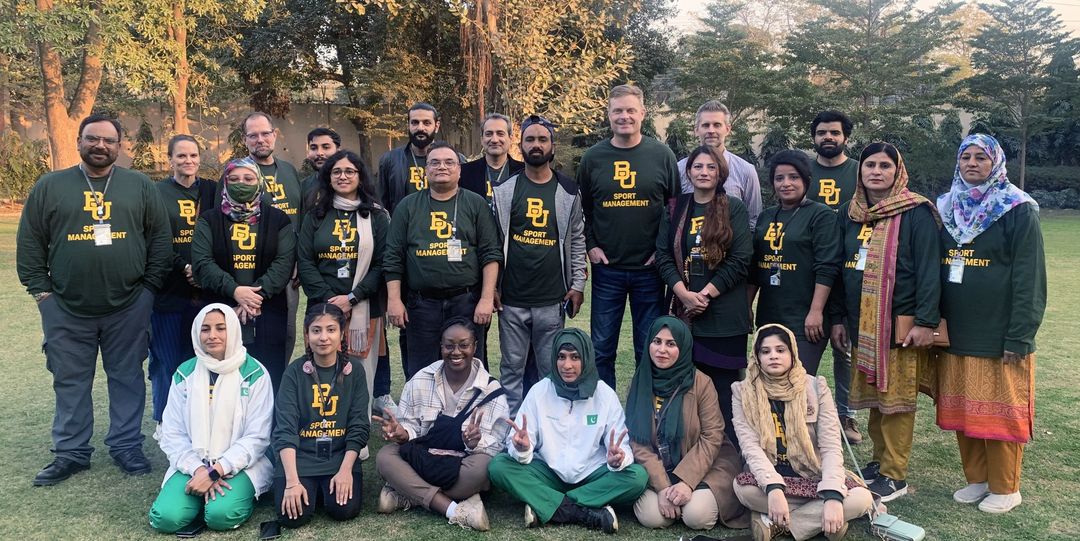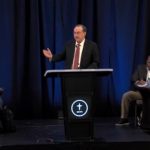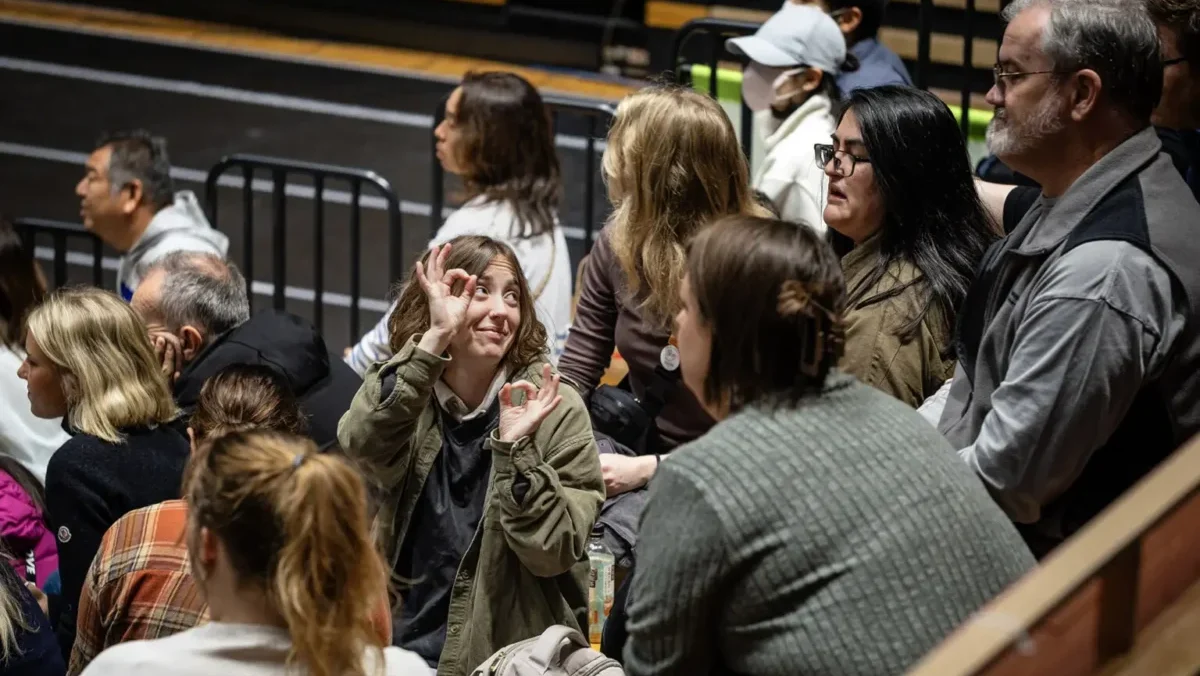In a culture where women often are marginalized and women’s sports are not recognized, a Baylor University group found ways to empower women by using sports to teach leadership skills.
Pakistani women from varied faith traditions discovered their leadership potential through a series of sports-related activities, interactive workshops and virtual learning communities facilitated by Baylor faculty, graduate students and alumni.
‘The Lord opened doors’
Under the guidance of William Sterrett, department chair and professor of educational leadership at Baylor, and Mar Magnusen, associate professor of educational leadership, the Texans worked with schools in Pakistan to strengthen women’s leadership and coaching skills in an interfaith context.
“The Lord opened doors for us,” Sterrett said.
The U.S. State Department provided a grant for the IDEA-SPORT program — Innovating and Designing Engaging Applications in Sports Promoting Outreach, Responsibility and Teamwork — to Baylor, the University of North Carolina Wilmington and several universities in Pakistan.
The grant not only made possible a series of virtual learning experiences via Zoom, but also enabled a group from Baylor to spend time in Pakistan leading in-person workshops for women in leadership skills such as problem-solving, conflict resolution and teamwork.
Panel discusses positive impact
Participants discussed their experiences in an Oct. 29 panel discussion presented by the Keston Center for Religion, Politics and Society at Baylor.
In addition to Sterrett and Magnusen, other panelists were Hina Abel, Dissertation Fellow in Higher Education Studies and Leadership; Meredith Frey, a Master of Arts in School Leadership Fellow; and Brooke Ramsey, a Baylor graduate and head of the Grammar School at Valor Preparatory Academy in Waco.
Originally, the goal was to make a positive impact on the lives of 1,000 female students at 10 participating schools and four universities in eastern Pakistan, Sterrett explained.
The team ended up making a significant impact on more than 4,800 female students, and more than 7,000 total students — male and female — benefitted from the equipment the group delivered to schools and the learning activities they led, Sterrett reported.
Empowering women by teaching leadership skills through sports is particularly important in Pakistan, where women’s options are limited, said Abel, who grew up in Pakistan and lived in Lahore until 2019.
“Whether a woman is single or married, whether she is educated or not educated, a woman from Pakistan remains dependent upon the men in her household,” she said.
‘Women are severely marginalized’
While women make up 48% of the population in Pakistan, less than one-fourth of the women are in the labor force, and only 2.9% of women are employed in senior or mid-level management positions, Abel reported.
“Women are severely marginalized by all means in Pakistan,” she said.
When women in Pakistan become involved in sports, they are entering a traditionally male field, she added.
“Women’s sports in Pakistan are not recognized, and they are not acknowledged,” she said. Women’s sports are not televised, they do not attract spectators, and they lack the sponsors needed to secure equipment and build training facilities, she observed.
Living as a Christian in Pakistan presents its own set of challenges, said Abel, whose husband is a Presbyterian minister. Christians represent only about 1.3% of the total population in Pakistan, she said.
“Christians — and particularly Christian women — need to be thought of not just as marginalized, but as the underdog among underdogs,” Abel said. “There is severe suppression on so many fronts.”
Making a ‘human connection’
The trip to Pakistan marked a homecoming not only for Abel, but also for another member of the Baylor team. Ramsey and her husband Charles, associate chaplain at Baylor, lived several years in Lahore. Ramsey noted she and Abel first became friends when they lived in Pakistan.
She particularly treasured the opportunity to engage in meaningful conversations with non-Christian students during the recent trip to Pakistan, she said.
“Interfaith dialogue is possible because we’re all made in the image of God,” Ramsey said. “You find that image of God in every human person on the globe, and it’s that image of God that enables us to develop friendships and to focus on our common humanity.”
Alongside providing instruction in leadership skills, the experience in Pakistan offered informal times of relationship building with students, Ramsey noted.
By “playing, laughing and feasting together,” the students and the Baylor team made a “human connection,” she said.
The Texans learned the rules of cricket and taught the Pakistanis how to play baseball. The visitors and students enjoyed competing in soccer, badminton and table tennis, and they shared meals together.
Together, they experienced and sought to reflect “the hospitality of God,” she observed.
“It’s the call of God on all of our lives, I believe,” Ramsey said.
EDITOR’S NOTE — This story was written by Ken Camp and originally published by the Baptist Standard.










